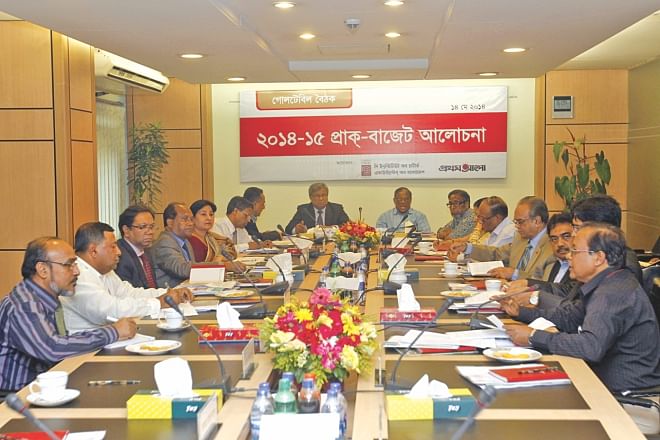Bad governance holds the country back
Bad governance holds the country back
Analysts say Bangladesh's economic growth could have been higher

A lack of good governance from budget formulation to implementation is holding back Bangladesh from achieving higher levels of economic growth, an economist said yesterday.
The economy will grow by 5 percent even if the government “falls asleep”, given the strong level of remittance and agricultural production, garment-dominated exports and women participation in rural economy, Akbar Ali Khan, a former adviser to a caretaker government, said.
Khan's comments came at a pre-budget discussion co-organised by the Institute of Chartered Accountants of Bangladesh and the Prothom Alo, a leading Bangla newspaper.
He said the upcoming budget will be devoid of accountability and transparency as there will be no contest or discussion in parliament, given that half of the parliamentarians were elected uncontested in the last national polls.
“Besides, there is no practice of discussion on the proposed budget by parliamentary standing committees. How will it be accountable when we cannot expect any contest in parliament?”
The budget system, which has been in practice for more than 40 years now, is in need of a massive reform, he said, adding that many countries including the neighbouring ones have brought many changes to their methodology for budget formulation and implementation.
Referring to the increasing disparity between the rich and the poor, Khan suggested that the government impose value-added tax in two forms: less than 15 percent on essential items and 15 percent or above on other products.
He said the number of items was less when the government first introduced VAT; the product range has increased manifold since.
About the budget deficit, the economist said the ratio of shortfall is not the major issue; the most important factor is how and where the money is spent.
“The deficit for us can be 5-6 percent of the budget. But if the money is spent on unnecessary or unproductive sectors, the deficit should not be even 1 percent of the budget,” he said, while citing India's budget deficit of 8 percent to 10 percent as a case in point.
Khan also recommended decentralisation of power, privatisation of loss making state-owned enterprises and reforms in revenue collection and administration.
Other discussants at the programme urged the government not to allow amnesty for black money anymore, as the provision is unethical, unfair to genuine taxpayers and encourages corruption.
They also requested the government to reduce corporate tax for banks, non-banks and insurance companies and increase the ceiling of tax-free dividend income from Tk 10,000 to Tk 30,000.
Abdul Majid, a former chairman of the National Board of Revenue, said it is a major concern that the annual development programme is not implemented timely.
In the first ten months of the fiscal year, only 47 percent of the ADP was implemented, with the implementation rate expected to hit 90 to 92 percent in the last two months, as in previous years.
“It means the government releases a huge amount of funds in the last two months. In most cases, the funds go to unproductive sectors and no utility comes from these. Rather, they increase the pressure on bank borrowing.”
“It will create a virus in the economy if the ADP expenses cannot be utilised for goods and services production,” he said, adding that planned policy is a must for proper implementation of the ADP.
M Hafiz Uddin Khan, another former adviser to a caretaker government, too called for changes in the budgetary system and performance review of budget expenditure.
Faruq Ahmad Siddiqi, former chairman of Bangladesh Securities and Exchange Commission, suggested the government introduce reforms in the tax administration system before increasing the target of revenue collection.
He said the system is handicapped by corruption and a lack of skilled manpower.
“It needs to be modernised. The government is making investment in other areas such as service administration but there has been nothing for tax administration.”
He said the government can collect funds from the capital market for financing big infrastructure projects like the Padma bridge or metro rail by offloading its stakes in state-owned firms.
“But, capital raising through listing the big infrastructures is not possible, as making the projects profitable will take longer and investors will not be confident to invest on them.”
MA Sabur Khan, the immediate past president of Dhaka Chamber of Commerce and Industry, said the NBR formulates the budget and it also collects the revenue.
“It is not possible to ensure good governance when the formulator becomes the collector.”
Salma Khan, former chairperson of Untied Nation's CEDAW Committee, said only 1.5 percent of the budgetary allocation is kept for the women and children affairs ministry and that too gets reduced in the revised budget.
Humayun Kabir, former president of ICAB, moderated the discussion, which was also attended by Abdul Qayyum, associate editor of the Prothom Alo, and Shawkat Hossain, president of ICAB.